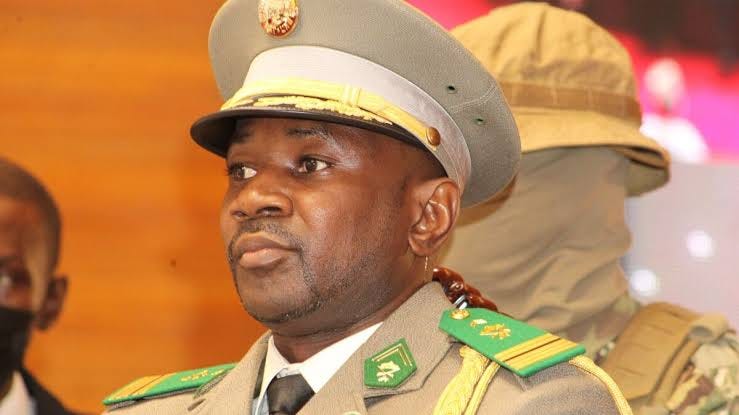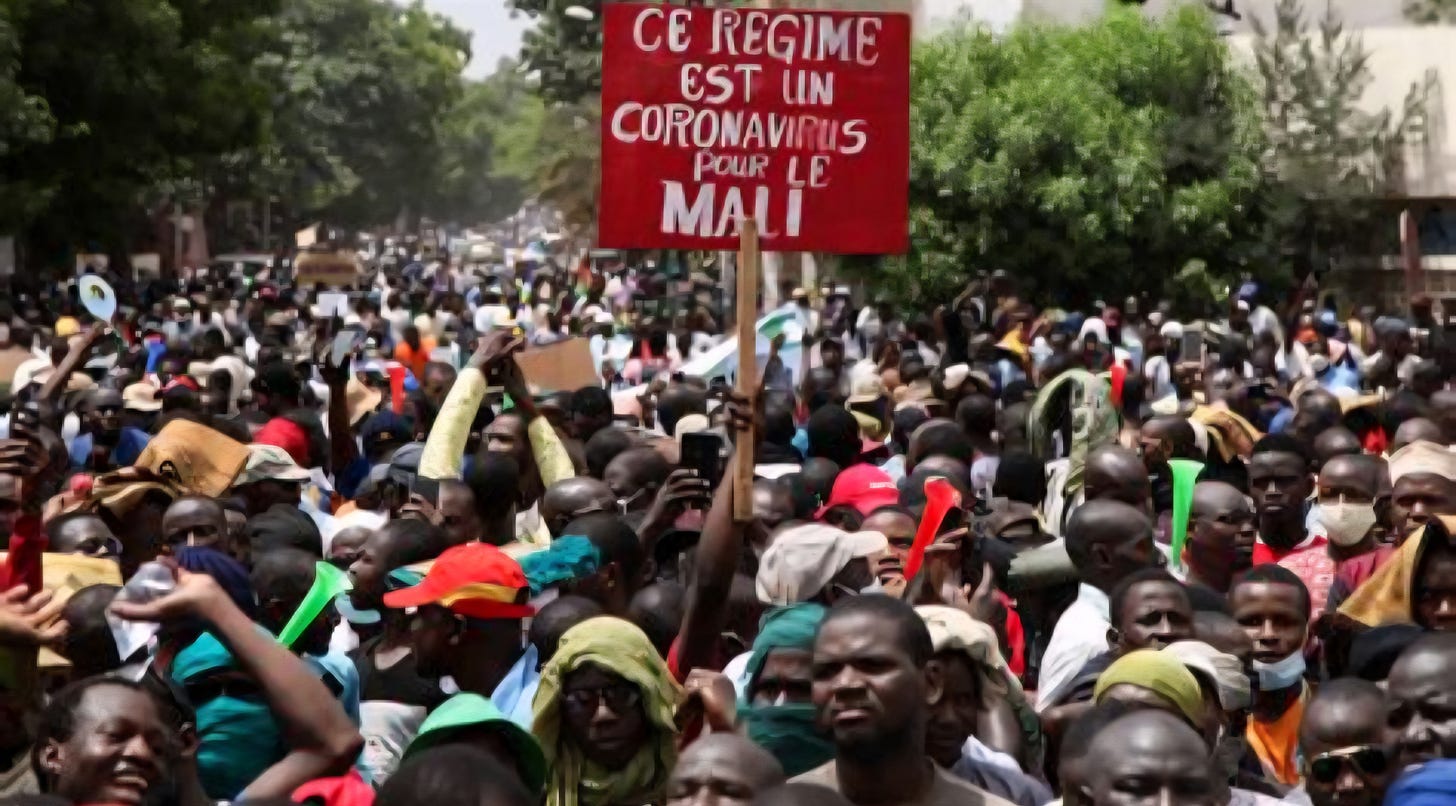Mali didn’t collapse in a single night. It bled out in silence.
First, the military marched in.
Then they locked the doors.
Then they cut the mics.
Now, in 2025, the junta has done what every two-bit autocrat dreams of doing but most don’t dare: they’ve outlawed opposition itself. Not just banned a party here or a protest there — they’ve obliterated the very concept of political pluralism. Every single party. Every organizing group. Wiped out with the stroke of a general’s pen.
Col. Assimi Goïta, the man who seized power in a 2020 coup and now rules Mali as its transitional president, didn’t just sign a decree — he detonated a constitutional bomb, vaporizing every political party in the country like it was some overdue clerical task.
And what do you do after you vaporize democracy?
You silence the witnesses.
FROM COUP TO CONTROL
The current mess didn’t begin this week — it began in August 2020, when Colonel Assimi Goïta led a military coup that ousted Mali’s elected president Ibrahim Boubacar Keïta. There were promises, as there always are: transition plans, timelines, a better future.
Instead, Goïta staged a second coup in May 2021 to sideline civilians from the process. By 2022, Mali had kicked out French troops, severed security ties with Europe, cozied up to Russia’s Wagner mercenaries, and delayed elections indefinitely.
Fast-forward to May 2025, and you get this: a regime so paranoid it sees multiparty democracy as an existential threat.
THE BAN ON PARTIES — AND FACTS
On May 13, the junta announced that all political parties and associations were dissolved, citing “national interest” and the recommendations of a handpicked “national dialogue.”
Translation: they asked themselves whether they should cancel democracy, and decided yes.
This wasn’t some obscure regulatory tweak. This was an all-out political purge.
Opposition leaders are being abducted in broad daylight. Protesters are being dragged off the streets in Bamako. The government’s legal justification? That these groups are obstacles to “national unity.”
Their actual crime? Disagreeing.
SHUTTING DOWN THE STORYTELLERS
You can’t control the story without controlling the storytellers. And in Mali, the silencing of journalists and independent media has gone from tactic to full-time strategy.
This week, Mali’s media authority banned French television outlet TV5Monde for airing a sentence.
One sentence.
A reporter said “hundreds of security forces were mobilized to prevent demonstrators from accessing” the Palais de la Culture during the May 3 protest.
The government said that was “defamatory.”
They insisted the security forces were not there to block access, but to “secure the demonstrators.”
Apparently, reality is now subject to official rebranding.
This comes after three years of media suffocation: France 24, RFI, and Mali’s own Djoliba TV News have all had their signals cut. Their sin? Covering protests, challenging propaganda, asking questions.
It’s no longer just censorship. It’s enforced amnesia.
THE ALLIANCE OF AUTHORITARIANS
Mali isn’t alone. It’s joined at the hip with Burkina Faso and Niger under the so-called Alliance of Sahel States — a club of military regimes born from coups, raised on repression, and bonded by their mutual hatred of press freedom and international oversight.
Each has expelled foreign journalists.
Each has detained opposition leaders.
Each has stalled elections indefinitely under the banner of “reform.”
Together, they are carving out a new authoritarian bloc in West Africa — one where Russian military contractors roam freely, democracy is treated like a virus, and the only truth is whatever the regime says it is.
THE PRICE OF SILENCE
The people of Mali are resisting — quietly, defiantly, at great risk.
Hundreds gathered on May 3 in Bamako for the first large pro-democracy rally in years. They waved banners, chanted slogans, and demanded their country back.
They were met with silence.
Then with force.
Then with erasure.
You may not see their faces on your feed.
You may not hear their chants on your nightly news.
That’s the point.
The story’s being buried before it can be told.
And the rest of the world? Shrugging.
Too distracted.
Too complicit.
Or too used to ignoring Black-led democracies under siege unless there’s oil, gold, or a chance to “restore order” with boots and bombs.
But we’re not looking away.
This post has been syndicated from Closer to the Edge, where it was published under this address.


